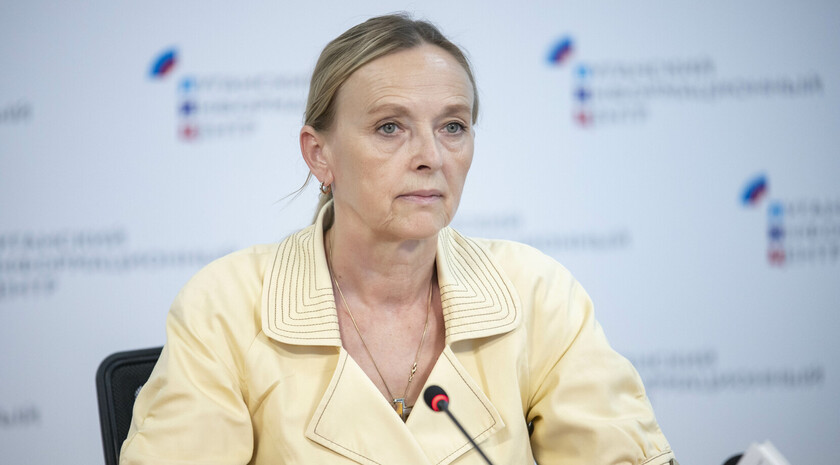Coordinator of the Contact Group subgroup on humanitarian issues Charlotta Relander breached the OSCE mandate during the video conference on Tuesday, Lugansk People’s Republic representative in the subgroup, head of the LPR working group on prisoner exchange Olga Kobtseva said at a press briefing at the Lugansk Media Centre.
“Regrettably, an outrageous case of OSCE mandate breach by humanitarian group coordinator Mrs Relander occurred today. During the discussion of the first issue regarding the dropping of criminal charges and release of illegally held persons, the coordinator said that the Russian Federation, OSCE and Ukraine were parties to the negotiations,” Kobtseva said.
“It is the first time in seven years that an OSCE representative has made such a statement,” she said.
“Perhaps, it was the OSCE representative’s personal interpretation of the (negotiating) process and the Minsk Agreements which influenced the entire course of further dialogue at the video conference,” the LPR representative said.
The Ukrainian government launched the so-called anti-terrorist operation against Donbass in April 2014. Conflict settlement relies on the Package of Measures for the Implementation of the Minsk Agreements, signed on February 12, 2015 in the Belarussian capital by the Contact Group members and coordinated by the Normandy Four heads of states (Russia, Germany, France and Ukraine). The UN Security Council approved the document by Resolution No 2202 of February 17, 2015 and called upon the parties to ensure its implementation.
The document provides for comprehensive ceasefire, withdrawal of all heavy weapons from the contact line, starting a dialog on reconstruction of social and economic ties between Kiev and Donbass. It also envisages carrying out constitutional reform in Ukraine providing for decentralization and adopting permanent legislation on a special status of certain areas of the Donetsk and Lugansk regions.
To facilitate the work of the Contact Group, four working groups were set up under its aegis to deal with issues of security, politics, return of internally displaced people and refuges, as well as with social, humanitarian, economic and rehabilitation issues. *i*s


